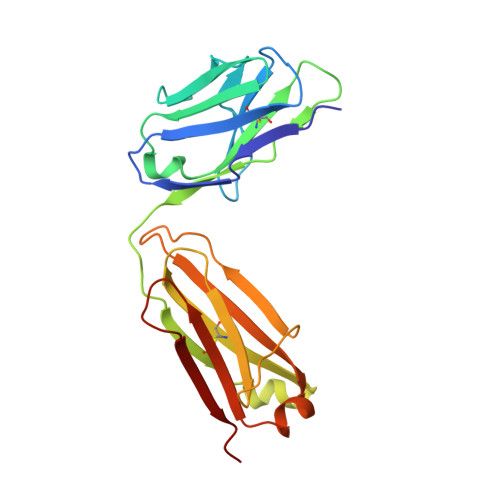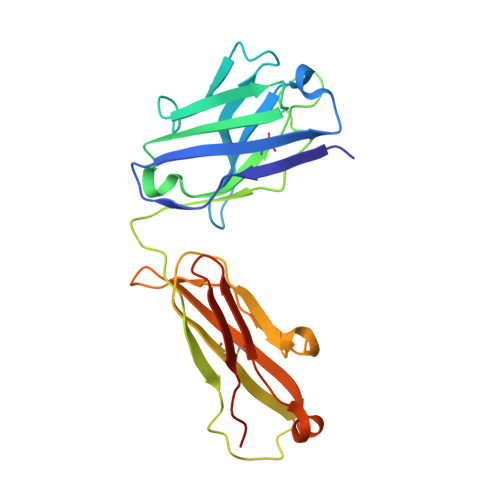Improving the solubility of anti-LINGO-1 monoclonal antibody Li33 by isotype switching and targeted mutagenesis.
Pepinsky, R.B., Silvian, L., Berkowitz, S.A., Farrington, G., Lugovskoy, A., Walus, L., Eldredge, J., Capili, A., Mi, S., Graff, C., Garber, E.(2010) Protein Sci 19: 954-966
- PubMed: 20198683
- DOI: https://doi.org/10.1002/pro.372
- Primary Citation of Related Structures:
3KYK, 3KYM - PubMed Abstract:
Monoclonal antibodies (Mabs) are a favorite drug platform of the biopharmaceutical industry. Currently, over 20 Mabs have been approved and several hundred others are in clinical trials. The anti-LINGO-1 Mab Li33 was selected from a large panel of antibodies by Fab phage display technology based on its extraordinary biological activity in promoting oligodendrocyte differentiation and myelination in vitro and in animal models of remyelination. However, the Li33 Fab had poor solubility when converted into a full antibody in an immunoglobulin G1 framework. A detailed analysis of the biochemical and structural features of the antibody revealed several possible reasons for its propensity to aggregate. Here, we successfully applied three molecular approaches (isotype switching, targeted mutagenesis of complementarity determining region residues, and glycosylation site insertion mutagenesis) to address the solubility problem. Through these efforts we were able to improve the solubility of the Li33 Mab from 0.3 mg/mL to >50 mg/mL and reduce aggregation to an acceptable level. These strategies can be readily applied to other proteins with solubility issues.
Organizational Affiliation:
Department of Drug Discovery, Biogen Idec, Inc., Cambridge, Massachusetts 02142, USA. [email protected]















